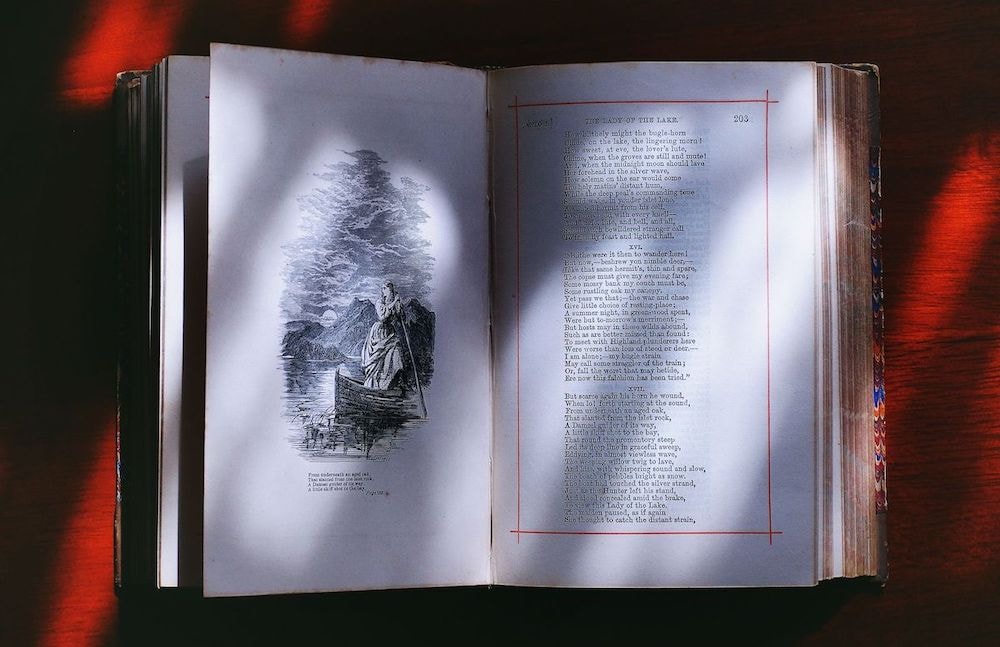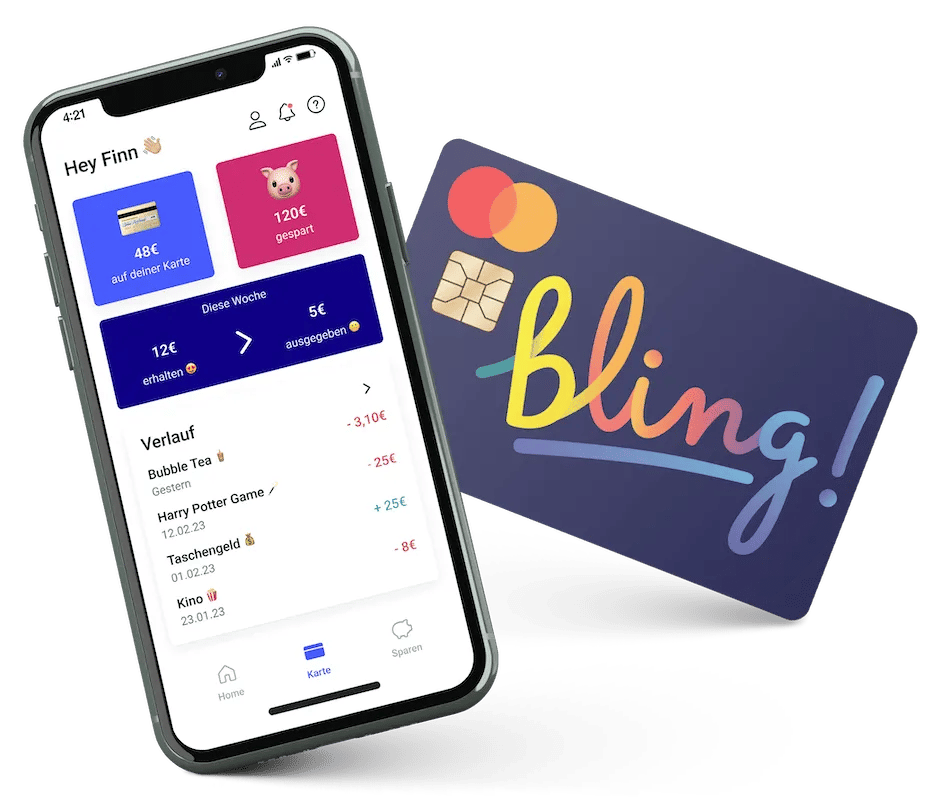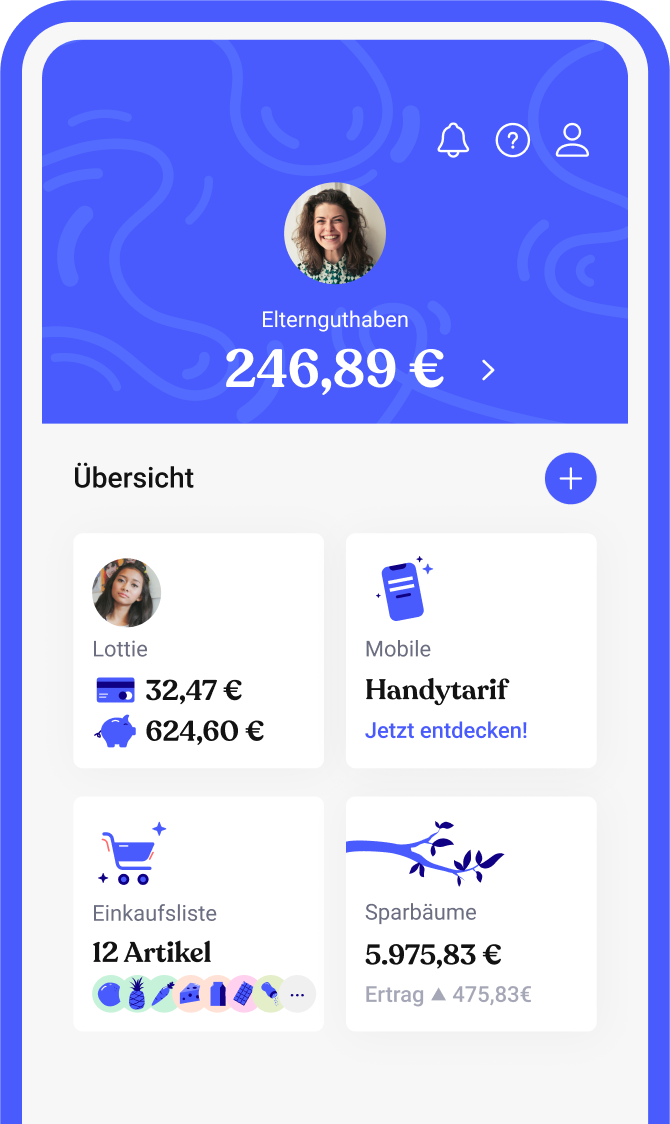It goes back to 1900. Yes, you're right. That is a bit far-fetched. But at the beginning of the 20th century, the topic of pocket money came up for the first time. And probably even literally. But not on the tables here in Europe. The idea of giving children pocket money at their own disposal originally came from America.
In Germany, things looked a bit different. Very different from today. So everything — not just that with pocket money.
If you want
Let's travel back to 1900 together: What was it like back then?
It is a beautiful summer day, sometime in August 1900, somewhere in Germany. The roads in the city are dusty. No wonder the girl walking along there barely stands out. Her skirt is dirty, almost as dirty as the street. The girl's name is Luise, she is 13 years old. It is around 5 o'clock in the afternoon and the sun is still shining hot from the sky. Louise stops to keep her face in the sun. But the smoke from the factories is so close over the city that the sun barely gets through.
On this summer day, sometime in August 1900, it is payday. Luise clutches a few coins in her skirt pocket. 5 marks. It is last week's pay. As always, she spent ten hours a day at the machine in the factory. Luise doesn't go to school. She doesn't know what's on the ad she's looking at right now. Louise continues. Her mother is waiting. She desperately needs her salary to buy bread for her and her five siblings. Once, Luise bought a piece of candy with her salary. That day, she had to go to bed without dinner.
If you want
Conclusion: Pocket money in 1900?
False report. Luise never thought about keeping anything from her salary. For what, too? She wouldn't have known when she should have spent it. Well, except once in a while on the way home from work at the grocery store next to her house. The candies there were just too delicious!
By the way: Luise wasn't the only child who worked in a factory. Almost all children were employed as workers. Luise received 5 marks a week for this. That is around 36.50 euros today. Not much for a whole week's work, is it?
If you want
And what happened with Luise?
In the year 1920 Luise is tall. She now has children of her own. Everyone can read and write them. Luise is very proud of this, as education has only been compulsory for a year. She doesn't want her children to have to work as much as she did when she was little.
But it doesn't work completely without work. Luise's husband was injured during the war and is not yet fit to take care of the family alone. Louise is nevertheless happy that the war is over. Maybe everything will be better now?
12-year-old Johannes, her youngest son, is also getting involved. After school, he and his mother go to the factory owners, who live a few streets away. They have a lovely big house with a garden. Johannes helps where he can. He sweeps, chops wood and repairs the stairs while his mother cleans, cooks and takes care of the family's five children. When Johannes grows up, he would also like to live in a house like this. With just as much an apple tree in the garden.
The father of the family gives Johannes candy from time to time. “But don't tell your mom,” he says then. His mother receives the money for the work of Johannes and his mother wrapped in a newspaper sheet from the previous day. Johannes thinks that's great. He can read the newspaper at home.
If you want
Conclusion: Pocket money in 1920?
Not a chance. Even the manufacturer's children were not given any money at their disposal. Just after the war, money was scarce — just like everything else. A few years later, things looked completely different: Louise was suddenly a millionaire. Oh nonsense: billionaire! Unfortunately, she couldn't even send a letter out of all her money. So much money was printed in Germany that it was no longer worth anything. Johannes was even allowed to play with the banknotes from time to time. It was cheaper than buying toys.
Luise did not know at the time that this would go down in history as hyperinflation. But she already guessed it.
If you want
Johannes and pocket money in 1940
In the year 1940 John himself is a father. He has two daughters: Anna and Martina. They both go to school. Unfortunately, he doesn't live in a house as nice as the one he worked in as a child. But in summer, he occasionally lets an apple go from the tree of the factory owner's villa. However, another family now lives there. John doesn't like them.
But he hasn't given up on his dream of a house yet. He is currently still working in a factory that produces ammunition. After the war, however, he wants to found a company himself. He wants to make wooden horses. The kind he carved himself for his two daughters. Just more beautiful.
Anna and Martina are eight and ten years old. They can't choose what they do after school. Neither did your parents. But if there is still some time left, they help their mother with the household or go to their neighbor. She takes care of orphans. There they cook and do laundry. Unfortunately, her neighbor doesn't have enough money to pay her for it. In return, however, they are allowed to borrow one of the books that are on their neighbor's shelf from time to time.
If you want
Conclusion: Pocket money in 1940?
Sorry Anna, sorry Martina. It wasn't that time yet. But that didn't bother Anna and Martina. They had other things on their mind and money wasn't one of them. For what too? There was no candy they could buy from it. They would only have liked to buy a book. But they had their neighbor with the great bookshelf for that.
If you want
And what happened to the wooden horse?
It is the year 1965: Anna and Martina have taken over their father's toy business. He never built wooden horses. But they're selling some in the store now.
The parents who come to the shop talk about one thing in particular: pocket money. In the 1960s, everything was suddenly different from what Anna and Martina experienced in their own childhood. They have no idea how often they say to their children: “When we were your age...! ”
The parents in the toy store say that the children should learn how to handle money. Completely independent. Like adults. Because that's the way they do it now!
Anna and Martina try it out right away, of course. Your children each receive one mark a month. The big kids who help out in the toy store after school, even a bit more. But Anna and Martina are not yet able to completely stay out of it. The two often interfere, especially with Karsten, Anna's eldest son. You've already observed twice how the 15-year-old spent his pocket money on cigarettes.
If you want
Conclusion: Yeah! There is pocket money!
The cash registers have been ringing in children's rooms since the mid-1960s. It is finally becoming established that children no longer grow up by working but by learning. They no longer have to spend hours a day at a machine for their money. They get it just like that — and they can even keep it. They just can't avoid doing laundry, cooking and chopping wood: at home.
If you want
Karsten is a non-smoker in 1990. And the allowance?
Sina, Jonas and Leonard: these are Karsten's three children. He gave up smoking a long time ago. He himself no longer understands why he spent his pocket money on it.
However, pocket money has prevailed. Almost every child from their children's school classes receives pocket money. 7-year-old Jonas also receives one Mark of pocket money a month. After school, he buys himself a few sweets from time to time or he puts it aside until he can afford a comic book. He does it all by himself. Because the pocket money paragraph gives him the freedom to spend his pocket money all by himself.
If you want
Conclusion: In 1990, pocket money is already quite normal
All right. Pocket money in 1990 was not as normal as it is today. Not all children received pocket money. And as in previous years, it was completely different in cities than in rural areas anyway. But one thing was certainly exactly the same as today: If Jonas wanted to get more pocket money, he had to negotiate with mom and dad. And guess what Karsten said to him then: “When I was your age...! ”
If you want
Last stop: Today
Jonas hated it when his father said that to him. He knew perfectly well that Karsten did receive pocket money as a child. What do you think Jonas is saying today when he negotiates pocket money with his daughter Clara?
If you want
Okay, welcome back to reality
We have to confess something to you: We don't even know Jonas. Neither did Karsten and the others. And Louise certainly not. Did it really work out that way? I have no idea!
But the evolution of pocket money? Absolutely!
If you want
By the way: If Jonas and Clara exist somewhere, they definitely have the Bling Card
Still not sure what the Bling Card is? You should definitely change that! Here you can find out how to make life easier for yourself and your family when it comes to pocket money.
If you want























